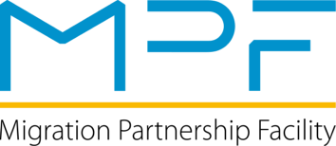Migration dialogues are powerful instruments for advancing migration governance, bringing together stakeholders at all levels – from Ministers and policy makers to experts and practitioners. They enable governments to exchange good practices in managing migration, asylum and border security.
Through the MPF, the EU facilitates migration dialogues between Member States and Western Balkans, the Middle East, Central Asia, Silk Routes and South Asia by supporting the Prague Process and the Budapest Process.
Prague Process

The Prague Process is a targeted migration dialogue and a policy process promoting migration partnerships among the countries of the European Union, Schengen area, Eastern Partnership, Western Balkans, Central Asian, as well as Türkiye.
MPF supports the implementation of the PP Action Plan 2023-2027 through sustaining the three pillars of work and through four Thematic Components led by different Prague Process participating states.
What has the Prague Process achieved? - Impact Note
Key achievements were brought to light during a recent external evaluation and compiled in an Impact Note - a short, visually engaging summary with key results since 2009.
Budapest Process

Over the past 30 years, the Budapest Process has developed into an influential interregional and inter-governmental dialogue on migration. The Chair, Türkiye, supported by the Co-Chair, Hungary, oversees the daily running of the process, implemented by ICMPD, which serves as the Secretariat of the dialogue.
The dialogue has come to master the balance and interplay between political dialogue and operational action, with concrete projects flanking the dialogue and creating tangible outcomes of the established political objectives, such as the Migrant Resource Centres - MRCs.
What has the Budapest Process achieved? - Impact Note
Key achievements were brought to light during a recent external evaluation and compiled in an Impact Note - a short, visually engaging summary with key results since 2009.
